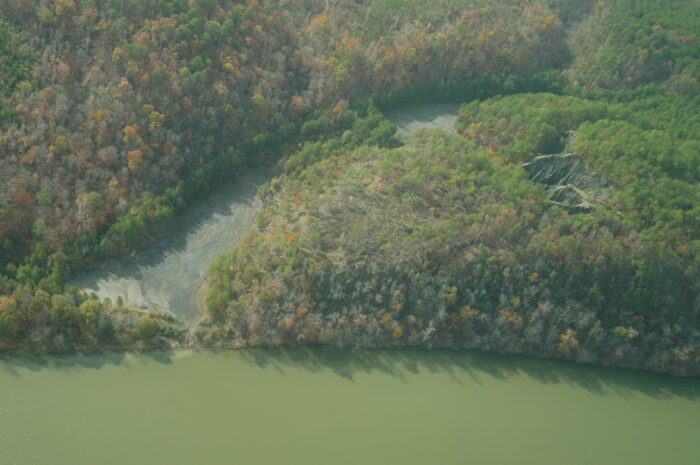Victory: Drummond required to clean up its Maxine Mine site in Alabama
In a major victory for the health of the lower Locust Fork and the Black Warrior River, a federal judge in Birmingham has granted the request by Black Warrior Riverkeeper to approve a consent decree requiring Drummond Company to clean up its abandoned Maxine Mine site. The approval was finalized after a May filing.
The mine, which was the largest underground mine in the state, produced tons of coal per year after opening in the 1930s but has sat abandoned since operations stopped in the 1980s. Since shutting down, pollution has been running off the site unchecked and polluting Alabama’s waterways.’ In addition to being a continuous source of acid mine drainage, coal mine waste completely fills what was once a tributary of the Locust Fork. In 2016, Black Warrior Riverkeeper took legal action to staunch the flow of acid mine drainage into the Locust Fork River, which then flows in the Black Warrior River.
The rulings in this case and the consent decree have set a precedent for polluters to take responsibility for violating federal law and harming Alabamians’ clean water.
Barry Brock, Director of SELC Alabama Office
Following more than five years of litigation to force Drummond to stop the pollution, the approved consent decree marks the official victory of clean water advocacy groups working to protect the Locust Fork of the Black Warrior River. The site has continued to discharge polluted water and mine waste without a permit for decades, harming an invaluable natural resource and popular recreation spot for residents across Alabama.

“People who swim, fish, paddle, and boat in the Locust Fork and the Black Warrior River downstream and all the fish, turtles, mussels, and other wildlife are way overdue for this old coal mine cleanup,” said Nelson Brooke, Black Warrior Riverkeeper. “Drummond now must move forward with significantly reducing their discharges of harmful metals, acidic water, and other pollutants into the lower Locust Fork.”
“The rulings in this case and the consent decree have set a precedent for polluters to take responsibility for violating federal law and harming Alabamians’ clean water,” said Barry Brock, director of the Southern Environmental Law Center’s Alabama Office. “The terms of this finalized consent decree will protect the Black Warrior River from harmful legacy impacts of coal mining.”
Under the terms of the consent decree, which is a type of court approved settlement, Drummond must remediate the site to eliminate unpermitted pollution, including sediment, metals such as iron, manganese and aluminum, and other pollutants.
The consent decree specifies that Drummond must comply with pollution limits by a set date, and that the new limits apply even if a less stringent permit is issued by the state. If Drummond fails to meet the final compliance deadline, the decree imposes penalties of $1,750 per day. Drummond will also be required to set aside funds to maintain and operate treatment systems for at least 30 years. Finally, Drummond must pay $2.65 million in litigation costs and $1 million for a Supplemental Environmental Project to mitigate the effects of its past pollution in the Locust Fork watershed.
These rulings set important precedent for similar sites in Alabama and the southeast, affirming the jurisdiction of the Clean Water Act for both surface water and groundwater pollution.
